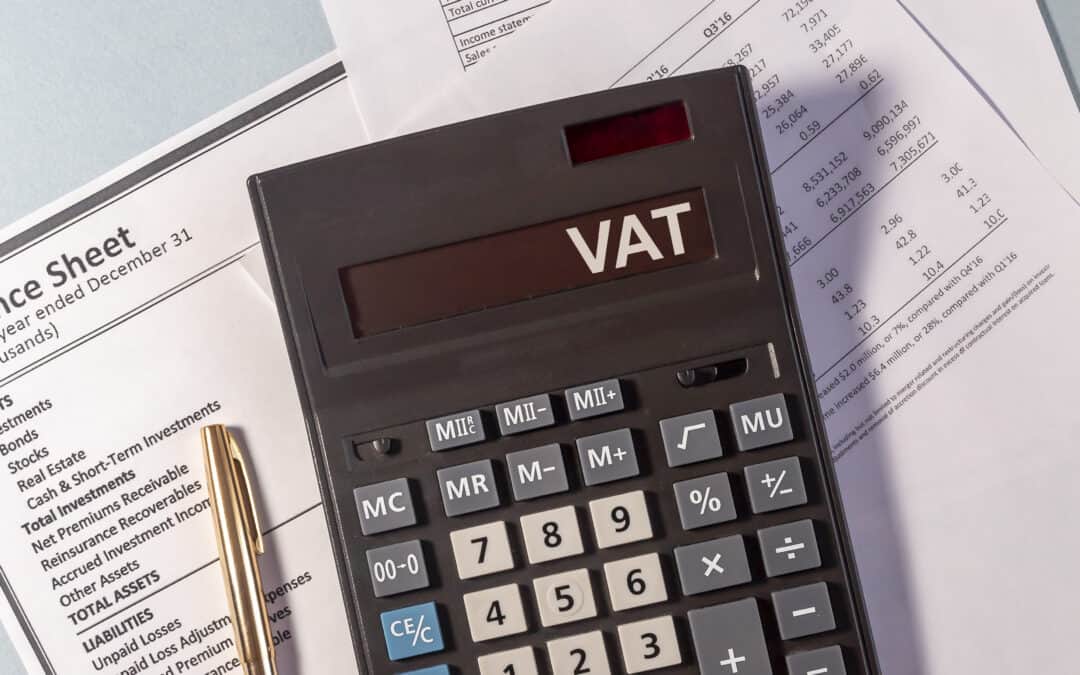As a self-employed person, managing your tax liability can be especially tricky. You don’t have the support of an in-house finance team. It’s hard to navigate all these complex regulations on your own.
Value added tax (VAT) is a particularly complex issue. Self-employed persons are obliged to register for VAT under certain circumstances.
At the same time, in some cases, you may choose to register for VAT, even if you are not obligated to do so.
This article will help you make more informed VAT decisions.

As a self-employed person, when do I register for VAT?
Generally speaking, when the taxable turnover of an enterprise exceeds the threshold set by the local tax authority, the enterprise needs to register for VAT in accordance with the law. Individual industrial and commercial households are no exception, and their VAT registration thresholds are the same as any other business.
For example, if your annual turnover exceeds £85,000 per annum, in the UK you must register for VAT with HMRC. Each country has its own threshold, but the basic principles are the same. (Obviously, in countries where there is no VAT – such as the US – there is no VAT threshold and no corresponding VAT registration obligation.)
Do self-employed businesses need to pay VAT?
Essentially, the rules are the same for any business. After registering for VAT, you will be charged VAT on most goods and services. (A limited number of goods and services are zero-rated and therefore not subject to VAT, even if the supplier is registered for VAT).
While only VAT-registered taxpayers can and must collect VAT, they are also the only entities that can recover VAT. That is, once registered, you can recover all VAT incurred in the normal course of business.
When submitting a VAT return, a registered VAT self-employed person can declare an amount equivalent to input VAT (the VAT you pay on business expenses) over output VAT (the VAT you collect on your invoice). In other words, if a business pays more VAT than it collects, the difference can be recovered.

How does VAT work when self-employed?
After registering for VAT, you are obliged to collect VAT and submit regular and accurate VAT returns to the local tax authorities.
With many self-employed individuals managing their own accounting and business management, the bureaucracy of administering VAT can be daunting. After all, filing the wrong VAT return or filing the wrong return, even if these errors are not intentional, carries the risk of serious penalties and VAT surcharge rates.
Given the complexities of VAT compliance, self-employed individuals may simply be content to meet their VAT obligations. More advanced VAT strategies, such as maximizing VAT refund opportunities, appear to be beyond the scope and capabilities of a sole proprietorship.
While this concern is understandable, neglecting to recover all available VAT can significantly increase the cost of doing business. Fortunately, cutting edge VAT compliance technology and expert VAT support are now available to any business. These opportunities mean that even the self-employed can take advantage of state-of-the-art VAT strategies and optimise their VAT compliance.
Can self-employed individuals benefit from VAT technology?
VAT compliance technology makes it easier to organize all supporting documents and ensure your VAT returns are accurate. With the support of a VAT recovery expert, you can maximize your VAT recovery, reducing your overall business costs.
With the assistance of our tax experts, you can also optimize your VAT recovery and enhance your cash flow. This liquidity relief is often especially useful for self-employed or small businesses.
If you anticipate that your taxable turnover will soon exceed the relevant local VAT threshold, you could start preparing to meet your VAT obligations as soon as possible. This way you can ensure that your day-to-day business operations are not disrupted by additional requirements for VAT compliance.
Self-employed individuals typically manage business functions themselves, and they tend to worry when compliance issues arise. Get in touch with us to help you meet your tax obligations ahead of time and ensure you make the best business decisions every step of the way.

